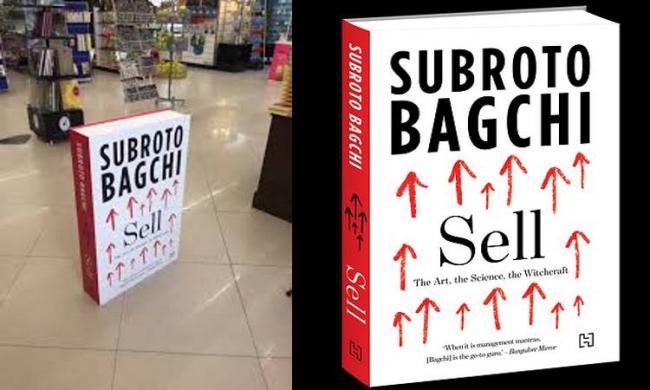Fiction Ruled The Roost In Indian Publishing In 2017

New Delhi: Fiction was almost lost from Indian publishing at about this time last year. With about three non-fiction titles releasing for every novel, it was clear who ruled the roost in 2016 - just as it did in 2015. In 2017, however, book lovers had a lot to chew upon as some really strong novels made their mark both in the market and among readers. Their numbers again may have been fewer than non-fiction, but it was the utter magic of some strong novels that stole the show.
Call it the return of Arundhati Roy or the magic of Jeet Thayil, but most readers would agree that 2017 has been a fantastic year for Indian publishing when one looks at the fiction space.
Poulomi Chatterjee, the dynamic Editor-in-Chief and Publisher at Hachette India, agreed that 2017 was a good year for fiction in Indian publishing but also highlighted that non-fiction continued to rule the market. Subroto Bagchi's "Sell", Muhammad Yunus' "A World of Three Zeros", Alan Rosling's "Boom Country" and Ankit Lal's "India Social" were among the better-selling books from Hachette India this year.
"The year 2017 has seen a good mix of releases across genres from all publishers in India. While non-fiction categories have remained the better-selling ones, there have certainly been strong fiction titles that have found their readership and made their mark. Publishers will always strive to publish strong fiction because this, after all, is the soul of a publishing list," Chatterjee told IANS.
She elaborated that on the "great fiction list across a range of genres" that Hachette published this year are Pradeep Sebastian's dream of a book on books, "The Book Hunters of Katpadi"; Arunava Sinha's excellent translation of Moti Nandy's short stories "Kick-Off"; Sanjay Bahadur's kick-ass military thriller "Bite of the Black Dog"; Komal Bhanver's "The Mauryan", featuring the story of a young Ashoka; and Swati Kaushal's delightful year-end read, "A Few Good Friends".
"And that's just a few - there's much more fiction to come next year, all of it exciting," Chatterjee added.
Having published some of the most talked-about literary novels in 2017 like "The Ministry of Utmost Happiness" by Arundhati Roy, "Exit West" by Mohsin Hamid, "The Golden House" by Salman Rushdie, "A State of Freedom" by Neel Mukherjee, "A Life of Adventure and Delight" by Akhil Sharma and "We That Are Young" by Preti Taneja, Penguin Random House India Editor-in-Chief, Meru Gokhale, said that 2017 was "the year of literary fiction" for he company.
"Each of these books won critical acclaim and pretty much all of them were seen on award listings and bestseller charts. Above and beyond all of these quantifiable measures, what these books did was to capture the imagination in a year that saw tumultuous political change across the globe.
"I think every publisher in India will agree that, in times like these, of alternative truths and cultural shifts, fiction -- at least good fiction -- grants us insight and escape, a way of understanding our dark new age, and an unapologetically provocative worldview," Gokhale told IANS.
While most publishers agreed that 2017 was a good year for Indian fiction, Udayan Mitra, Publisher - Literary, HarperCollins India, pointed out that Indian fiction has been really strong over the past few years. He, however, agreed that there were some strong novels in 2017.
"I think it's been a great year for literary publishing - we've seen some very good books being published, and more are on their way. I wouldn't say there was any need to reclaim fiction as such, since Indian literary fiction has been really strong over the past several years. But yes, we have had some very strong novels coming out, and some great new voices making their presence felt too.
"What is particularly interesting to me is the way in which fiction writers in India are reacting and responding to the environment that they live and write in -- it has brought a sharp edge to many of the books that have come out this year. Another notable trend is the re-emergence of short fiction -- the ability of a novelist to tell a good story well in a space of 200 pages or less -- which I believe has something to do with the sensibilities of both readers and writers being shaped by the age of social media," Mitra told IANS.
Other publishing houses that published strong fiction during 2017 include Aleph ("The Book of Chocolate Saints" and "The Greatest Urdu Stories Ever Told"); Juggernaut ("When I Hit You"; and Niyogi Books ("Without Prejudice").
IANS





